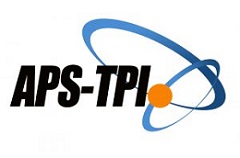Using Microsoft Quiz and Mobile Exam Applications to Improve Teacher Competence in Online Learning in the New Normal Era
Abstract
The pandemic that came suddenly resulted in teachers not having sufficient preparation in adapting to distance learning by utilizing information technology. The problem found is that teacher’s literacy is still lacking in the use of the application to support distance learning, including the use of applications for learning evaluations. Therefore, training in using the Microsoft Quiz application and mobile exam is required for teachers. This article aims to describe the use of the Microsoft Quiz application and the mobile exam as media for assessing and evaluating distance learning. The research method used was a descriptive qualitative method with the ADDIE model of learning design. Based on this study’s results, it was revealed that this learning design could be applied to training in the use of the Microsoft Quiz application and the mobile exam. The research stage included analysis, design, development, implementation, and evaluation. The study’s results showed that the training in the use of the Microsoft quiz and mobile exam applications could improve teacher competence in online learning in the new normal era.
Keywords
Full Text:
PDFReferences
Ardiansyah, A. A., & Nana. (2020). Peran Mobile Learning Sebagai Inovasi Dalam Meningkatkan Hasil Belajar Siswa Pada Pembelajaran Di Sekolah. Indonesian Journal Of Educational Research and Review, 3 (1).
Arikunto. (2012). Dasar-dasar Evaluasi Pendidikan. Jakarta: Bumi Aksara.
Carey, D. a. (2015). Systematic Design of Instruction, The, 8th Edition. -: University of South Florida.
Dewi, W. A. (2020). DAMPAK COVID-19 TERHADAP IMPLEMENTASI PEMBELAJARAN DARING DI SEKOLAH DASAR. Jurnal Ilmu Pendidikan, 2 (1), 55-61.
G.Muruganantham. (2015). Developing of E-content package by using ADDIE Model. International Journal of Applied Research, 1(3), 52-54.
Gugah, S. (2020). Pendidikan Era Revolusi Industri 4.0 di Tengah Covid-19. Jakarta: https://ombudsman.go.id/artikel/r/artikel--pendidikan-era-revolusi-industri-40-di-tengah-covid-19.
Ika. (2020). Membedah Tantangan Pembelajaran Daring di Tengah Pandemi Covid-19. Yogyakarta: https://ugm.ac.id/id/berita/19552-membedah-tantangan-pembelajaran-daring-di-tengah-pandemi-covid-19, diakses 31/10/2020.
Kemendikbud, S. (2020). SE tentang pedoman pelaksanaan belajar dari rumah selama darurat covid-19 di Indonesia. Jakarta: -.
Ma, J. (2018). World Economic Forum. Davos, Swis: diakses tgl 2 Oktober 2020.
Mendikbud. (2020). SE tentang pelaksanaan kebijakan pendidikan dalam masa darurat penyebaran corona virus diseases (Covid-19). Jakarta: -.
Mendiknas. (2007). Permendiknas nomor 16 tahun 2007 tentang Standar Kualifikasi Akademik dan Kompetensi Guru. Jakarta: -.
Microsoft. (2020). Micorosft Form. -: https://support.microsoft.com/id-id/office/tanya-jawab-umum-tentang-microsoft-forms-495c4242-6102-40a0-add8-df05ed6af61c.
Mutaqinah, R. T. (2020). Implementasi Pembelajaran Daring (Program BDR) Selama Pandemi Covid-19 di Jawa Barat. Jurnal Pendidikan Teknologi Informasi dan Komunikasi, 6 (2), 86 - 95.
R. J. Stiggins. (1994). Student Centered Classroom Assessment. New York.
Rachmawati, & Kurniawati, A. ( 2020). Pengembangan Instrumen Penilaian Tes Berbasis Mobile Online Pada Prodi Pendidikan Matematika. Jurnal Pendidikan Matematika, 4 (1), 46-63.
Sarjono. (2013). Membangun course e-learning berbasis moodle. Yogyakarta: UNY Press.
Sarrayrih, & Ilyas. (2013). Challenges of Online Exam, Performances and Problems for Online University Exam. . International Journal of Computer Science Issues (IJCSI), 10(1) , 439-445.
Sugiyono. (2017). Metode Penelitian Pendidikan (Pendekatan Kuantitatif, Kualitatif dan R&D). Bandung: CV. Alfabeta.
Suharwoto, G. (2020). Pembelajaran Online di Tengah Pandemi Covid-19, Tantangan yang Mendewasakan. Jakarta: https://pusdatin.kemdikbud.go.id/pembelajaran-online-di-tengah-pandemi-covid-19-tantangan-yang-mendewasakan/.
Surani, D. (2019). Peran Teknologi Pendidikan dalan Pendidikan 4.0. Prosiding Seminar Nasional Pendidikan FKIP Universitas Ageng Tirtayasa, 2 (1), 456 - 469.
Zydney, J., & Warner. (2016). Mobile Apps for Science Learning. Review of research. Elsevier Computers & Education, 1-17.
Refbacks
- There are currently no refbacks.





.png)













